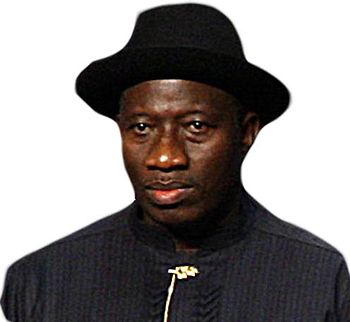
The run up to this year’s general elections has been most unusual. So intense is the passion on both sides of the incumbent president’s re-election bid that just about every artifice has been reached for, and then deployed — unfortunately, often not to telling effect. In this new process, we have collectively plumbed new levels of mendacity. Old concerns about how much of our failure to emerge as a people, economy, culture, etc. is explained by serious national character flaws are again being underlined by this conflation of lying with politicking.
Yet there may be a more benign explanation for this flirtation with untruths — ignorance, and the mental laziness that sustains it. In a conversation with a friend, last week, I realised that a 40-year old Nigerian today was only about 8 years old in 1983. With a sizeable proportion of our population in the mid-teens, what this means is that more than half of Nigerians living today (i.e. close to 80% of correspondents on my social media timelines) were not born when the coup d’état that overthrew the Alhaji Shehu Aliyu Shagari government took place.
Not many therefore can recall how life became progressively difficult for Nigerians in the years between October 1, 1979 and December 31, 1983. How a spendthrift democracy conspired through acts of flagrant omission and tawdry commission to turn all national measures negative. External reserves dropped. The Naira tanked. And just about every import item — milk, sugar, flour, margarine, etc. — was classified as “essential commodity”. These were rationed at the retail end, and we queued for them. A different form of rationing occurred at the wholesale end of the market, too — you needed import licences to bring anything into the country. And strange actors in the economy got these licences — very few manufacturing concerns did, although many with political connections appeared to have ready access to these new government gilts. For then (like now) those licences guaranteed access to the dollar at subsidised rates.
I recall, growing up in Ilorin, how my father’s phone call to drive down to the only supermarket in town then to pick up the shopping was all cloak and dagger. On reaching my destination, I would park the vehicle by a different outlet. I would walk into the usually crowded supermarket to register my presence. Then wait for a while outside until the cartons of milk were delivered by the porters. It all felt wrong. But I always drove away a successful predator, quarry in the car boot.
This was the trigger for the 1983 coup — a failed economy, and a failing state. The Buhari administration had its failings. Unable to boost dollar earnings in the short-term, it sought to resolve the riotous conduct at the queues freely using sjamboks and jackboots. It attacked a growing concern with drug trafficking — the country was now featuring as a new drug transit route in the global trade; pack mules from Nigeria, laden with their consignments were being picked up by customs personnel all over the world; and there were real worries of collateral damage from rising domestic consumption — through a law whose most odious component was not so much its prescription of the death penalty for drug trafficking.
Within the picnic environment of the regular Bar Beach spectacle where convicted felons were shot regularly by a firing squad before cheering spectators, the death penalty was not as awful sounding then as it might be today. The problem with the law under which Bartholomew Owoh and Lawal Ojuolape were executed was that it reached back to a time before their “crime” attracted this penalty. Truth is there can be no defence for a retroactive law.
“Counter-trade”! That was another Buhari innovation. The administration inherited an economy as broke as the current one is. Crude oil trade cycles were based on 90-day credit — oil exporters deliver oil today only to be paid in three months’ time. The counter-trade arrangement was in part the result of the administration’s impatience. But, truth to tell, the citizens were restive. So, under General Buhari, we paid down for imports (essential ones) through crude oil swaps. It was never going to be a transparent process — costing for instance was an issue. But trade by barter always was opaque.
The alternatives to the barter option were few in those days. At a different level, the Exchange Control Anti-Sabotage Decree (the one under which Justice Gregory Okoro-Idogu sent Fela to gaol for 10 years) failed to stem the haemorrhage of dollars that was hurting the naira’s exchange rate; and undermining government’s finances. Remember that our current national belief in the price mechanism as an arbiter of demand and supply pressures is an Ibrahim Babangida gift. Before the famous “IMF conditionalities v. Homegrown economic” remedy dialogue, it was permissible for a nanny state to aim to do everything at once.
Decree 4, however, was a very strange one — even for those times. True, those were unusual times, and government needed to stay as narrowly on message as possible. It could do with few distractions. But to prescribe a term in jail for those distractions (especially when they are true) stole the cake for poor legal draughtmanship.
How did the clandestine attempt to return Alhaji Umaru Dikko from the United Kingdom to face outstanding corruption charges go down? It was audacious. It was anti-colonial (reminiscent, in its own way, of the Murtala administration’s riposte to the Ford administration in the US on the conditions for decolonising the continent). It was, in a very qualified sense, “a coming-of-age” type experience. And from the “left” of the domestic political spectrum, it was resoundingly applauded. Nonetheless, it hurt diplomatic relations with a major trading partner at a time we could least afford such ructions.
Ultimately, the truth is that the Buhari administration was the child of the poor economic conditions of the early 1980s. Arguably, and hindsight is always 20-20 vision when invited to interrogate narratives of this sort, the Buhari administration could have addressed matters differently.
Still, I recap all of these not so much for those who may have forgotten. But for those who never knew.

